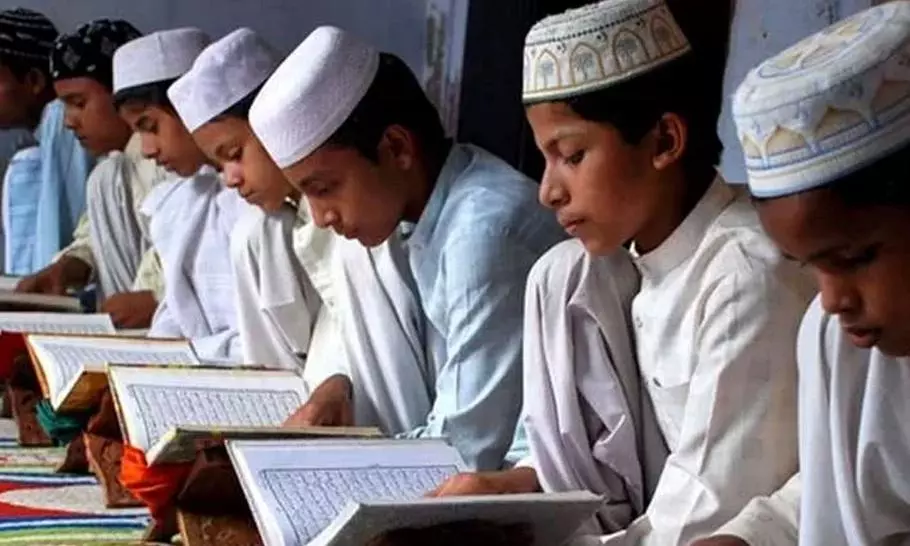
Supreme Court upholds validity of UP Madrasa Education Act
The legislative scheme for the Act is to standardise the level of education being prescribed in the madrasas, the court said

The Supreme Court on Tuesday upheld the constitutional validity of the 2004 Uttar Pradesh Board of Madrasa Education Act and set aside an Allahabad High Court ruling that struck it down.
A three-judge bench presided by Chief Justice DY Chandrachud gave the ruling after hearing pleas challenging the high court’s decision to declare the law as unconstitutional on the ground that it violated the principle of secularism.
“We have upheld the validity of the Act,” the chief justice said. “A statute can be struck down only for violation of part 3 or legislative competence and not for violating (the) basic structure (of the constitution).”
The order came as a big relief to teachers and students of UP madrassas as the High Court had ordered closure of the seminaries and relocation of students to other schools in the state.
SC faults high court
The apex court said the high court had erred in its judgement.
“The legislative scheme for the Act is to standardise the level of education being prescribed in the madrasas. The Act does not interfere with the day to day working of the madrasas.
“It is to protect the rights of the minority in Uttar Pradesh and is consistent with positive obligation of the State which ensures that the students pass out and earn a decent living.”
What the Act says
In March, the Allahabad High Court struck down the Act (Madarsa Act), saying it violated the principles of secularism. In April, the apex court stayed the high court verdict until it decided the validity of the Uttar Pradesh legislation.
The Act provides the legal framework for madarsa education where, apart from the curriculum of the National Council of Educational Research and Training (NCERT), religious education is imparted too.
The law creates the Uttar Pradesh Board of Madarsa Education, predominantly comprising members of the Muslim community. The functions of the board include preparing and prescribing course material and conducting exams for all courses from ‘Maulvi’ (equals Class 10) to ‘Fazil’ (equals Master’s).
UP defends Madrasa Act
The Uttar Pradesh government had told the Supreme Court that it felt the law was constitutional. It said the Act need not have been struck down in entirety and only the offending provisions should have been examined.
The chief justice said: “The state does have a vital interest even in ensuring standards in places of religious instruction. You interpret it that way. But to throw out the Act is to throw the baby out with the bathwater.”
The Supreme Court, however, noted that some provisions of the Act which empowers the Board to give degrees may be in conflict with the provisions of The University Grants Commission Act.
